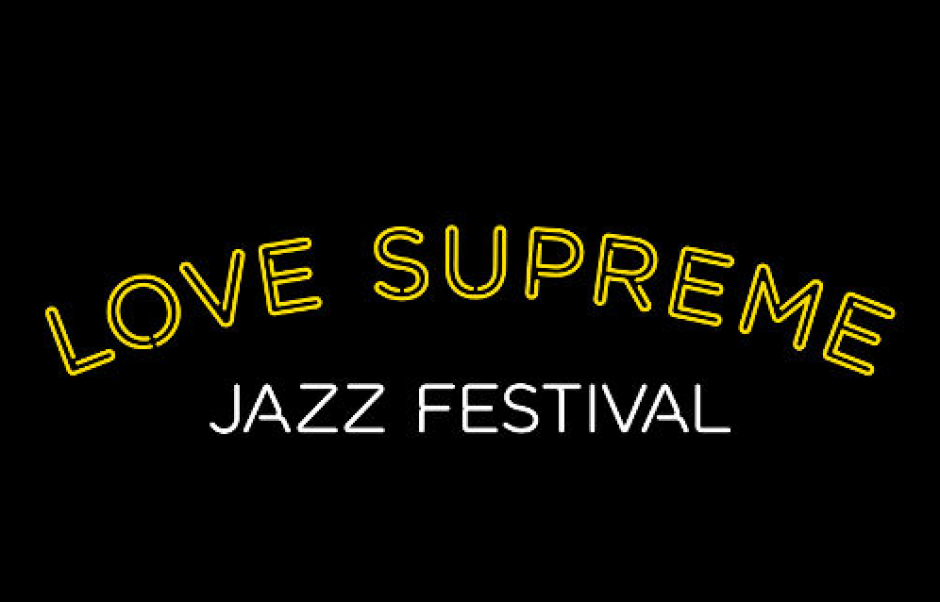Love Supreme Jazz Festival, Glynde Place, June 30-July 2.
So, Love Supreme is five. And there was a swing back to jazz (pun intended) this year. Topping the bill on Sunday on the main stages were Robert Glasper and Gregory Porter; and Herbie Hancock ended the day in the Big Top on Saturday. On the main stage were the Jacksons, reprising the show they’d put on at Glastonbury the previous weekend.
Hancock’s band was a small super group, which included Terrace Martin on alto saxophone and keyboards, Lionel Loueke on guitar, James Genus on Bass and Vinnie Colaiuta on drums; a testament to the kind of clout Hancock has. The set seemed to move through the styles of Hancock’s seventies electric period, through the ‘cosmigroove’ of the Mwandishi band, into a driving interlude that seemed to come straight from Miles’ ‘On the Corner’, and ended with reworking of Watermelon Man and Chameleon from the iconic Headhunters album. Terrace Martin who produced Kendrik Lamar, plays alto almost in the style of Headhunters’ Bennie Maupin; and his contribution to the set was almost uncanny.
First up on the smaller ‘Arena’ were drummer Jake Long’s ‘Maisha’; part of that young jazz renaissance emerging as a by-product of Gary Crosby’s ‘Tomorrow’s Warriors’ project. The band features two of that project’s alumni, Nubya Garcia on tenor and Shirley Tetteh on guitar. They have driving compositions and in Garcia’s muscularity, Tetteh’s warm dexterity, with Aname Suganami on piano, have musicians of real calibre. Later, Lee Fields and The Expressions appeared on the Main Stage. Fields’ nickname ‘Little JB’ (i.e. James Brown) belies a performer with a superb integrity. His range of compositions including the magical ‘I want you’ are delivered with drive and energy. This is a man for whom the word ‘soul’ seems an understatement.
In the Big Top, on Saturday afternoon was the Michael Wollny trio. Wollny’s group are almost the apotheosis of the European jazz piano trio. Wollny is a pianist with astonishing technique, and moves with ease from the delicately lyrical to the crisply hard-edged. The European jazz trio not only embraces Monk and McCoy Tyner, but reaches deep into the European classical tradition; Wollny name-checked the 14th century composer Guillaume Machaut and a Hindemith composition from the sixties. Amidst all the electrification of much the rest of the festival, it was lovely to hear these three empathetic and sensitive musicians working with such wit and creativity; one of the high points of the three days.
Sunday was more confusing; who would we miss? In the end, we missed Laura Mvula in the Big Top, and Kamasi Washington on the Main Stage. We did see Washington’s bass player, Miles Mosley with his side project ‘The West Coast Get Down’. Mosley has a warm and generous personality, and does the unusual thing of playing quite soul-oriented material on the double bass, and he sings too, brilliantly. The Get Down also had a ‘brass section’; a common feature of the three days, i.e. horn players who didn’t particularly solo. American-born, but London-based, bass player Michael Janisch brought his Paradigm Shift band to the Big Top in the afternoon. The band now features Empirical’s majestic Nathanial Facey on alto, and the pithy, sculptural quality of Facey’s soloing suits Janisch’s rich compositions. It was said of Joe Zawinul that he had a ‘God-given talent for a bass line’, and unsurprisingly, Janisch does too.
Christian Scott also played the Big Top on Sunday afternoon. His band is a version of the musicians he’s used on his recent discs with Elena Pinderhughes on flute, Luques Curtis on bass, Lawrence Fields on piano, and Mike Mitchell on drums. Scott’s trumpet playing is, for the most part, warm and lush, though he’s quite capable of going ‘out there’ when occasion demands. And Pinderhughes, at 22, is a sensational flautist, moving around Scott’s hauntingly beautiful, and deeply political, music with dexterity and verve. Finally, we saw Robert Glasper in his ‘Glasper experiment’ guise. Glasper is that most protean of performers, combining a virtuosic lyricism with an almost barroom warmth and funky attack. The ‘Experiment’ contains Glasper’s long-time collaborator, Casey Benjamin on alto and vocoder and the set contained a range of songs from their ‘ArtScience’ recording. There’s clearly considerable trust between Glasper and Benjamin, sporting a wide brimmed floppy hat, as both men are capable of going ‘off-piste’ for minutes at a time. Benjamin, in particular, likes to put his alto through considerable distortion in his spikey, unpredictable soloing.
Perhaps the five-year-old’s growing pains were a little more manifest this year. Where was Henry’s exquisite coffee; the quirky bookshop which sold a range of Penguin classics, graphic novels and music biogs at ridiculously cheap prices, and the wonderful gallette stall? And please stop people smoking in the tented arenas; it rendered the whole of BADBADNOTGOOD’s set a choking blur; and you used to stop it! But the weather was wonderful and the sound as excellent as ever.

